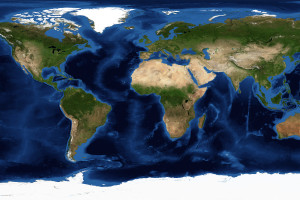Putin approves Russia’s new foreign policy blueprint

(RIA Novosti – December 1, 2016)
President Vladimir #Putin has signed a decree approving #Russia’s new Foreign Policy Concept, state-owned RIA Novosti news agency reported on 1 December.
The key points of the document, according to RIA Novosti, are as follows:
USA
– The risk of a war, including a nuclear war, between the leading powers is low, but the risks of being drawn into regional conflicts are increasing;
– The struggle for domination in the world is becoming the main trend of the modern stage of global development;
– Russia views the creation of the US global missile defence system as a threat and reserves the right to take appropriate measures;
– Russia will not accept the USA’s attempts to pressure it and reserves the right to respond strongly to unfriendly actions;
– Russia does not recognise the USA’s extraterritorial implementation of its jurisdiction outside international law;
– Russia is interested in building mutually beneficial relations with the USA given the special responsibility of the two countries for international security;
– Russia expects that the USA in its actions on the world stage will strictly abide by the norms of international law;
– The policy of the USA and its allies to contain Russia and to exert political and economic pressure on it undermines regional and global stability;
– Russia attaches great importance to the implementation of the START treaty with the USA;
– Russia is ready to discuss further phased reduction of nuclear potentials;
NATO
– Russia has a negative attitude to NATO’s enlargement, the process of moving its infrastructure closer to the borders of Russia and the escalation of the alliance’s military activity;
– Russia will build relations with NATO according to the degree of the alliance’s readiness for equal partnership;
European Union
– The EU remains an important economic and foreign policy partner of Russia; Russia is interested in stability and predictability of cooperation;
– The visa regime is one of the main barriers to the development of contacts between Russia and the EU; its abolition will provide an impetus for strengthening cooperation;
Terrorism
– The creation of a broad international coalition against terrorism must be the main area in the fight against terrorism.
– Russia is taking all measures to counter terrorism in accordance with international law and Russian laws;
Middle East, Afghanistan
– Russia favours a settlement in Syria and the unity, independence and territorial integrity of that country;
– Russia will continue the course for a political and diplomatic settlement of conflicts in the Middle East without external interference;
– Russia supports the establishment of zones free of nuclear weapons and other weapons of mass destruction, first of all in the Middle East;
– Instability in Afghanistan poses a threat to the security of Russia and the CIS; Moscow will make efforts for a settlement;
Asia-Pacific
– Russia views the strengthening of its position in the Asia-Pacific region as a strategically important direction of its foreign policy;
– Russia notes the coincidence of approaches with the People’s Republic of China for resolving key tasks and will continue to improve cooperation with China;
– Russia will continue to build good-neighbourly relations with Japan;
– Russia will seek to reduce confrontation, ease tensions on the Korean Peninsula and reconcile the sides through dialogue;
The Arctic, Antarctica
– Russia is open to building relations with Canada, including in the Arctic, based on respect of interests;
– Russia will firmly oppose any attempt to bring elements of confrontation and military standoff to the Arctic;
– Russia will step up the process of international legal demarcation of its borders and maritime spaces;
– Russia will work to expand its presence in Antarctica;
UN, arms in space, media, information security
– There is no alternative to the United Nations as the centre for regulating international relations and policy coordination;
– Russia will contribute to improve the mechanisms for applying UN sanctions; these decisions should be taken collectively by the Security Council;
– Strengthening international law is a priority;
– Russia will oppose attempts by individual countries to revise international law and to interpret it arbitrarily for political reasons;
– An international treaty is needed to prevent an arms race in space; for now countries must commit not to deploy weapons first;
– Russia will use new technologies to strengthen the position of Russian media abroad and to protect its information security.
